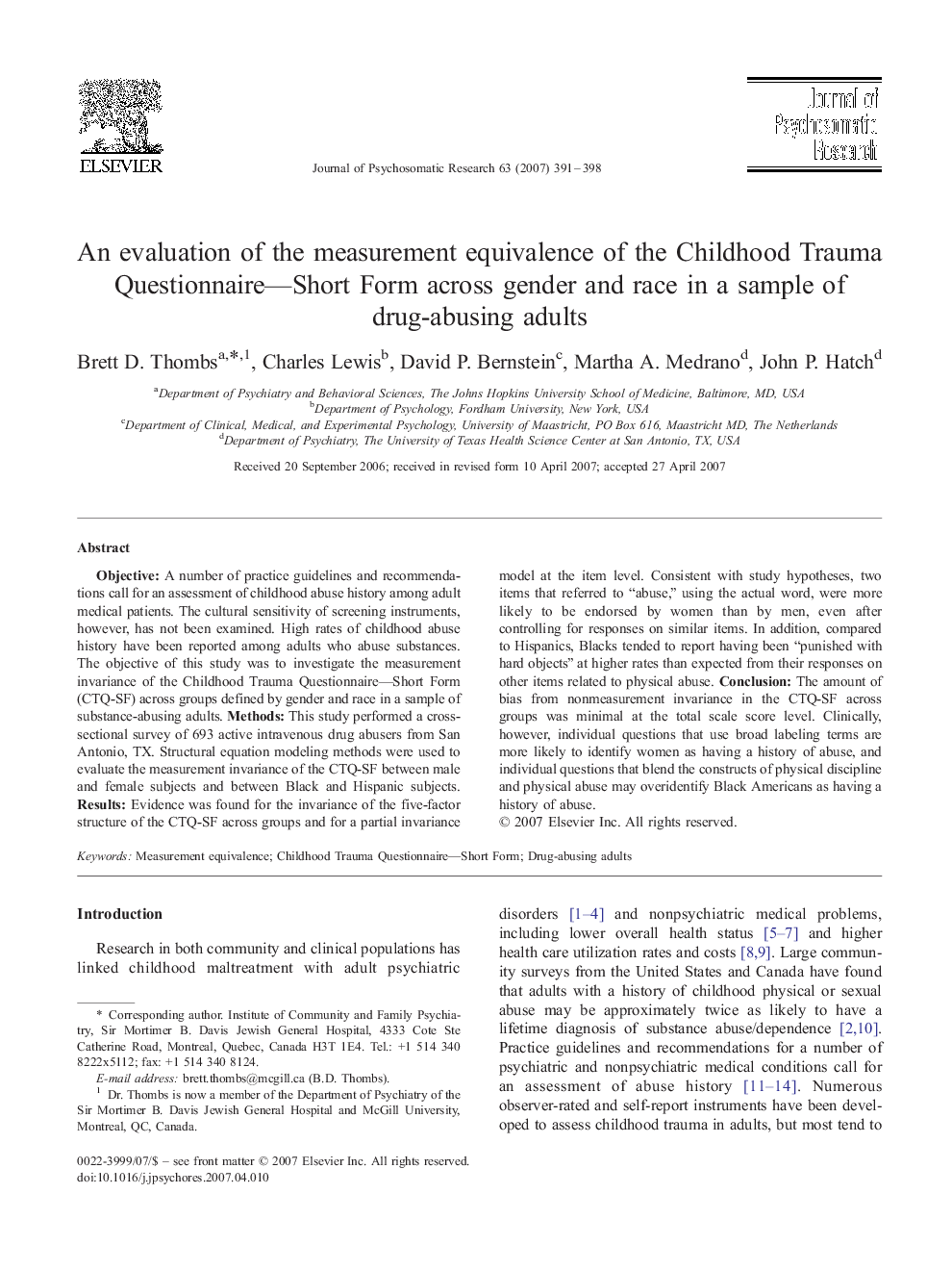| Article ID | Journal | Published Year | Pages | File Type |
|---|---|---|---|---|
| 951145 | Journal of Psychosomatic Research | 2007 | 8 Pages |
ObjectiveA number of practice guidelines and recommendations call for an assessment of childhood abuse history among adult medical patients. The cultural sensitivity of screening instruments, however, has not been examined. High rates of childhood abuse history have been reported among adults who abuse substances. The objective of this study was to investigate the measurement invariance of the Childhood Trauma Questionnaire—Short Form (CTQ-SF) across groups defined by gender and race in a sample of substance-abusing adults.MethodsThis study performed a cross-sectional survey of 693 active intravenous drug abusers from San Antonio, TX. Structural equation modeling methods were used to evaluate the measurement invariance of the CTQ-SF between male and female subjects and between Black and Hispanic subjects.ResultsEvidence was found for the invariance of the five-factor structure of the CTQ-SF across groups and for a partial invariance model at the item level. Consistent with study hypotheses, two items that referred to “abuse,” using the actual word, were more likely to be endorsed by women than by men, even after controlling for responses on similar items. In addition, compared to Hispanics, Blacks tended to report having been “punished with hard objects” at higher rates than expected from their responses on other items related to physical abuse.ConclusionThe amount of bias from nonmeasurement invariance in the CTQ-SF across groups was minimal at the total scale score level. Clinically, however, individual questions that use broad labeling terms are more likely to identify women as having a history of abuse, and individual questions that blend the constructs of physical discipline and physical abuse may overidentify Black Americans as having a history of abuse.
